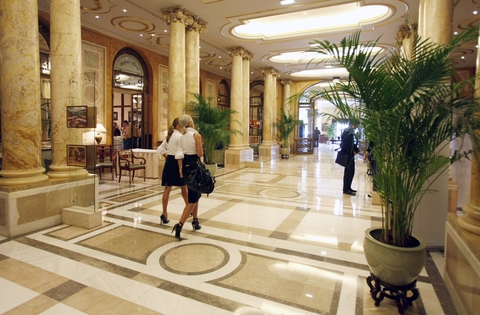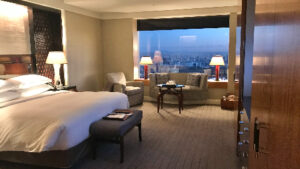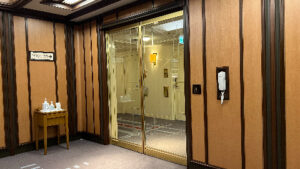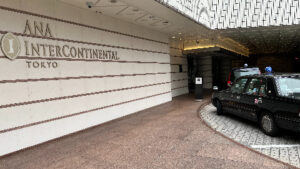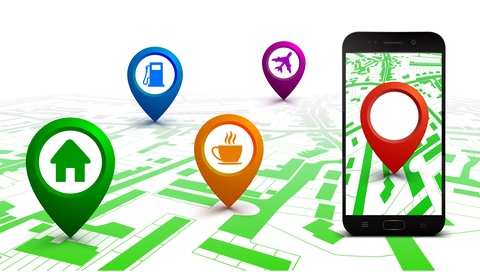As a result of the convergence of COVID-19, overseas travel is no longer restricted. Thus, surveillance of foreign travelers is returning to pre-pandemic levels. When doing surveillance of visitors to Japan, PIs must be familiar with the hotel conditions where the visitors are staying. In business transactions or domestic disputes, PIs are often asked to monitor travelers
When doing surveillance of visitors to Japan, PIs must be familiar with the hotel conditions where the visitors are staying. In business transactions or domestic disputes, PIs are often asked to monitor travelers.
Tokyo Hotels for Executive Visitors
In surveillance of visitors to Japan, PIs are supposed to stake out hotels in Japan.
There are certainly many high-quality hotels in Japan, thanks to the country’s excellent hospitality and world-class service. However, Forbes Travel Guide 2021 states that Japan has only 13 five-star hotels, significantly fewer than countries such as the United States, China, and France. In part, this may be due to the fact that Japan has a strong tradition of ryokans (traditional Japanese inns) and onsens (hot spring resorts), providing a unique and highly regarded style of hospitality that is unlike that found in western luxury hotels.
As a result, wealthy foreigners coming to Japan are limited in the number of hotels they can choose from. It is routine for us to assess the location, structure, and level of security at such luxury hotels. Knowing such hotels is useful for stakeouts at hotels as well as checking on clandestine visitors (industrial spies, secret lovers, etc.) in hotel rooms.
Characteristics of Japanese Hotels
There are no security guards at hotel entrances in Japan because it is a relatively safe country. Due to the lack of security guards, hotels often have multiple entrances. In other countries, there is often only one entrance to a hotel due to security reasons.
In luxury hotels, there are no overt surveillance cameras installed in the corridors of guest rooms. Privacy is considered more important than security in Japan.
The elevators to the corridors of most luxury hotels, however, require a card key. The corridor leading to the guest rooms can only be accessed by hotel guests.
In this sense, when investigating activities at a luxury hotel in Japan, PIs must be familiar with the location and the level of security and take appropriate measures.
Examples of Tokyo Hotels
Below are some examples of hotels frequented by targets coming to Tokyo.
The Ritz-Carlton Tokyo
The Ritz-Carlton, Tokyo
+81 3-3423-8000
https://maps.app.goo.gl/JPYxp55UnUw8NJyv7
In Tokyo, Japan, the Ritz-Carlton is one of the most popular hotels. One in three wealthy foreign visitors to Japan stays at The Ritz-Carlton, located in Roppongi, Japan’s largest shopping district. Concierge, décor, dining, and guest rooms are all of the highest quality. The hotel is located in the tallest tower in Tokyo, and the views from the 45th floor lounge and lobby are stunning. It is not uncommon for business meetings to be held in the lounge even if you are not staying overnight. PIs may also conduct surveillance of targets after business meetings.
FYI
The building has multiple entrances and exits from B3 to 2F. Gusto accesses the lobby & reception on 45F from these entrances. To get to the guest rooms, guests will use the private elevator from the 45F. Detectives will only monitor the 45th floor to confirm guest arrivals and departures. Since the detective only needs to monitor the 45th floor, it is less difficult to investigate activities. However, because the lobby is small, the detective can easily see the target’s face, but there is also a risk that the detective will be seen by the target.
Imperial Hotel Tokyo
Imperial Hotel Tokyo
+81 3-3504-1111
https://maps.app.goo.gl/Z7GgaNnXpcX1i57f6
Imperial Hotel is Japan’s oldest luxury hotel and one of the Big Three, with a history of over 150 years, and was seized by GHQ after World War II as a hotel exclusively for high-ranking officials of GHQ. It has a unique classic atmosphere. Located near the Imperial Palace and Ginza, it is a prestigious Establishment that corresponds to Westminster and St. James in England.
FYI
The main room floors are divided into general and VIP areas, which must be accessed through unpopulated corridors, followed by IC gates. Each floor has its own concierge and IC gate, the highest level of security in Japan.
In VIP rooms, additional investigators are needed to monitor the corridors. Even the general area has concierges and IC gates on every floor. PIs can get in trouble if they fail to understand these situations.
ANA InterContinental
InterContinental – ANA Tokyo, an IHG Hotel
+81 3-3505-1111
https://maps.app.goo.gl/gvqyEAmiQJ1erPs28
A hotel like this is likely to be a favorite of astute employees. Its price is lower than those of the two hotels above. So it is an appropriate grade hotel for A guest other than a CEO or executive. In Japan, employees below the rank of directors may be guided to this hotel because the hotel is prepared according to the position of the guest in the organization.
FYI
The guest rooms have outdoor access on the first and second floors.
This hotel will be monitored by PIs in the following ways:
-
- Upon becoming a hotel guest, we monitor the guestroom corridors with surveillance cameras.
-
- Two or more investigators monitor each entrance.
Due to the proximity of government buildings and business buildings to the Intercontinental, the target often uses cabs when dining or sightseeing. Due to the high volume of customers in the lobby, the investigator can easily blend in with the background, which is less challenging than in the hotels listed above.

